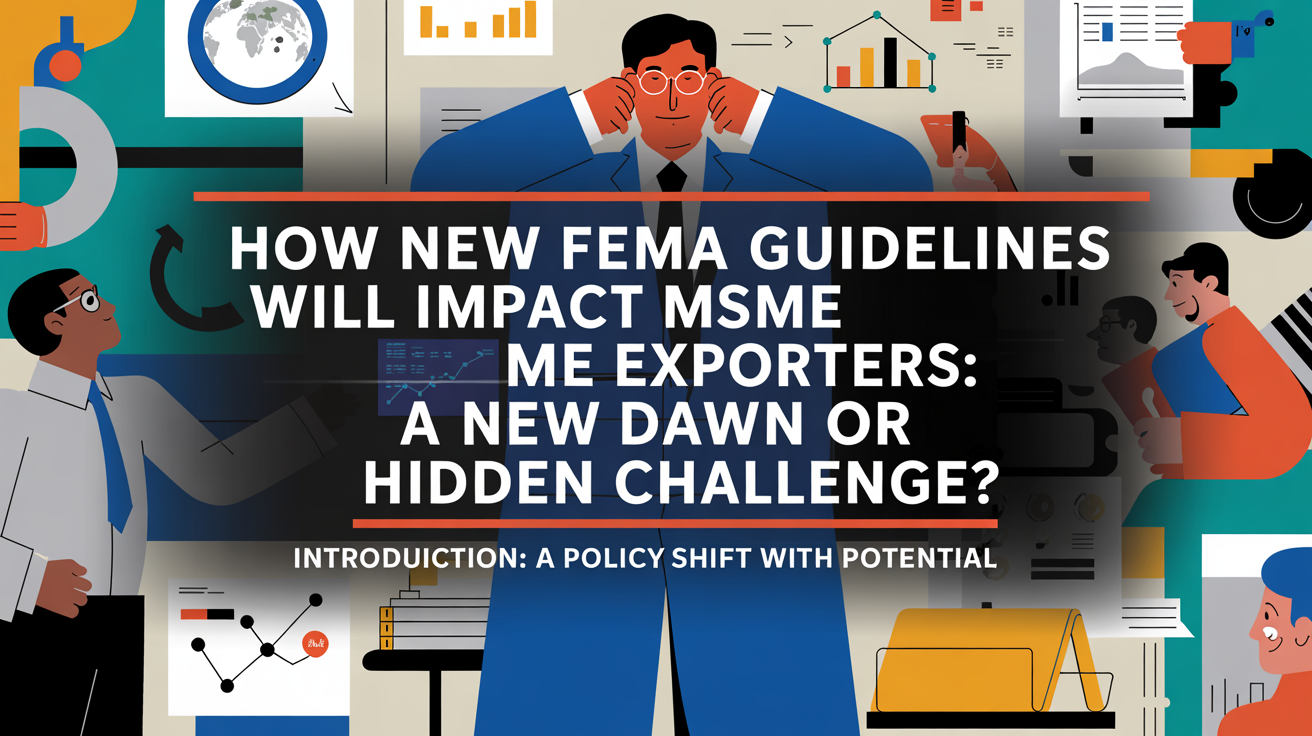
The draft of the new FEMA guidelines was issued in July 2024 for the purpose of streamlining existing rules, eliminating duplication, and giving more powers to authorized dealer (AD) banks. What do these changes mean for MSME exporters in India, who form the bedrock of the engineering export market in India? This article looks into the wide-ranging effects that proposed modifications are likely to have on foreign trade, especially with MSMEs, which make up a substantial percentage of India’s exporters. This article examines the wide-ranging effects of the suggested modifications on international trade, particularly as they relate to micro, small, and medium-sized enterprises (MSMEs), which account for a sizable share of India’s exporters.
Visit us at: https://www.niir.org/
Understanding the Core Changes
RBI’s proposed changes under FEMA aren’t just cosmetic—they’re structural. Here are the key features:
| Area | Current Regulation | Proposed Change |
| Export Proceeds Realization | 15 months (warehouse exports) | Reduced to 9 months uniformly |
| Import Payment Deadline | 6 months from shipment | No upper limit – decided contractually |
| Export Declaration | Multiple forms based on goods/services | Unified Export Declaration Form (EDF) |
| Self-Write-off | Allowed for status holders | Discontinued |
| Delegation | RBI-controlled | Shifted to AD banks with board-approved policy |
Source: EEPC India, March 2025 Edition
What Will Be the Effects on MSMEs?
1. Increase in Flexibility-The Double-Edged Sword
The new policies aim to facilitate compliance by empowering banks and curtailing RBI’s role; thus, there will be less regulatory hassle and expeditious clearance of MSMEs. Banks will have the discretion to establish fair and uniform internal regulations, yet these may differ greatly between banks.
2. No More ‘Self Write-Off’
One of the most contested amendments is the abolishment of the ‘self-write-off’ facility for export receivables. Formerly, the status-holder exporters could write off bad debts without going through anybody’s discrimination. Now, even the most minor write-off will be questioned and needs approval from the bank’s board if it crosses 25%.
Explore MSME business opportunities: https://www.entrepreneurindia.co/
Key Observations from EEPC India: Sector-Wise Data & Impact
Let us delve into EEPC India’s comprehensive study on steel and aluminum exports depending upon the new trade abominators, especially Section 232 tariffs and the FEMA impact.
USA’s Global Imports of Steel & Steel Products
India is among the top 10 exporters to the U.S., but with only 3.9% market share in 2023 (down from 4.4% in 2022). Higher tariffs and stricter FEMA guidelines may widen this gap if compliance becomes cumbersome.
| Exporter | 2022 (US$ Bn) | 2023 (US$ Bn) | India’s Share (%) |
| Canada | 15.7 | 14.3 | 16.6% |
| China | 17.6 | 12.3 | 14.3% |
| India | 4.6 | 3.4 | 3.9% |
FEMA Guidelines on Advance Payments
One notable clause is that advance payments made or received, which do not result in import/export within stipulated timeframes, will now be treated as external borrowing or lending. This could be a regulatory red flag for startups and MSMEs relying on advance-based contracts.
📘 Read similar insights:
- Best 25 Low-Investment Businesses in West Bengal for 2025 – Niir Project Consultancy Services
- https://www.niir.org/blog/rising-young-business-leaders-in-uttar-pradesh-shaping-manufacturing/
- https://www.niir.org/blog/everything-about-ringers-lactate-manufacturing-business/
- https://www.niir.org/blog/how-to-start-an-acrylic-polymers-manufacturing-business/
Harmonisation: A Boon for Service Exporters
Another win for MSMEs is the move to treat service exports at par with goods. Earlier, service exports were subjected to the cumbersome SOFTEX form. Now, a single EDF will suffice, making life simpler for IT firms, SaaS companies, and freelancers.
Also Read: How MSME Engineering Exports Have Changed Trade Globally?
Increased Dependence on Banks: Friend or Foe?
While banks now hold more power to approve delayed settlements, allow set-offs, or even accept alternate payment methods, there’s concern over lack of uniformity in interpretation. Smaller exporters may face hurdles if bank policies are not MSME-friendly.
| Key Decision Area | Previous Authority | New Authority |
| Export realization extension | RBI | AD Banks |
| Set-off approvals | RBI | AD Banks |
| Merchanting trade rules | RBI | AD Banks |
Conclusion: Navigating Change with Strategic Support
India’s MSME exporters are resilient and adaptive—but these new FEMA changes will require awareness, planning, and strategic banking relationships. As EEPC India rightly points out, this shift marks a transition from a compliance-based regime to a facilitation-based one. MSMEs should seize this opportunity but remain cautious of hidden pitfalls.
How NPCS Can Support Entrepreneurs & Startups
At Niir Project Consultancy Services (NPCS), we specialize in helping entrepreneurs and startups assess business opportunities and navigate regulatory frameworks. Our services include preparation of Market Survey cum Detailed Techno-Economic Feasibility Reports detailed techno-economic feasibility reports for setting up new industries.
Our reports cover:
- Manufacturing process
- Raw material & machinery details
- Product mix and flow chart diagrams
- Market research & trend analysis
- Financial projections for feasibility analysis
We provide customized business plans, DPRs, and bankable reports to help entrepreneurs launch their ventures with confidence.
🔍 Watch our tutorials on YouTube: https://www.youtube.com/@NIIRproject
🌐 Explore more at:





